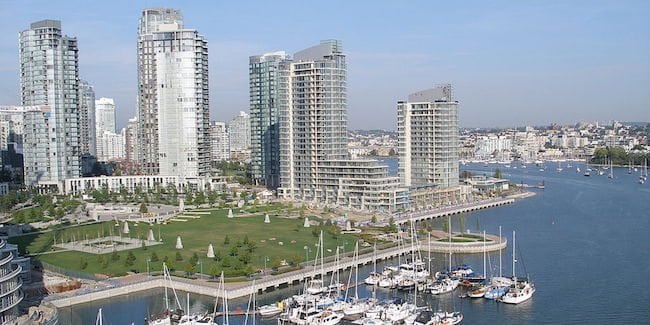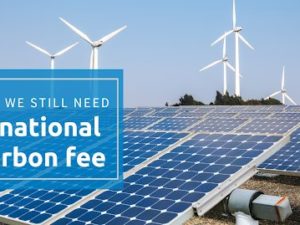
Vancouver, British Columbia (Photo by Quinet via Wikimedia Commons)
British Columbia will increase its carbon tax
By Cathy Orlando
As of April 1, 2018, the province of British Columbia (BC) will be back on track toward attaining its climate targets. Currently at $30 per ton, BC’s carbon tax will increase at a rate of $5 per ton of carbon dioxide equivalent emissions (CO2e) annually until rates are equal to $50 per ton of CO2e on April 1, 2021.
Here in Citizens’ Climate Lobby Canada, we welcome the news that the BC carbon tax is set to increase. BC enacted a revenue-neutral carbon tax in 2008. It has been praised as “the most significant carbon tax in the Western hemisphere.” That carbon tax has been frozen at $30 a ton since 2012, when BC Premier Christy Clark took over, but it will begin rising again next year.
Perks of the carbon price
Currently, the global tech market is worth over $1 trillion (CAD) and is on the cusp of a multi-trillion dollar clean tech revolution. The predictability of the BC carbon tax hike is key to de-risking clean tech adoption. De-risking is exactly what it sounds like: as fossil fuels become steadily more expensive, clean tech will become a predictably less risky investment. That will encourage more clean tech adoption and continue to drive down emissions. Also, the Climate Action Tax Credit will ensure that low and middle-income families will also benefit from the transition to a clean energy economy.
Currently, 86% of Canada’s population is already covered by a carbon price, and next year that number will rise to 100%, thanks to a requirement that all provinces and territories must have a carbon floor price of at least $10 per ton of CO2e by 2018. That means BC is already in compliance, and these additional increases show that they’re going above and beyond.
Revenue neutrality
To allay confusion, it must be noted that Canada’s national carbon pricing policy will be revenue neutral for the national government. All revenues generated will remain in that province or territory. Territorial and provincial levels of government can determine what can be done with the revenues from carbon taxes.
Within the province of British Columbia, the current NDP government will eliminate the requirement for the carbon tax to be revenue neutral. Revenue generated from the changes to the carbon tax may be used to help residents and families pay for green initiatives, such as home retrofits or green transportation.
With this week’s announcement, BC is setting itself up to be a good provincial partner, and ready to capture the benefits of the global transition to clean growth, while protecting the poor and middle class.





